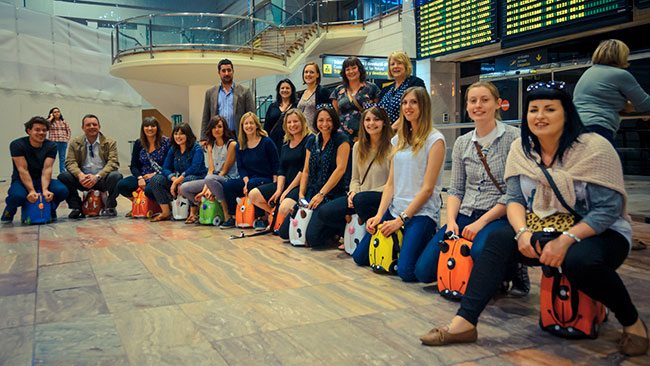In a long-running legal saga, Magmatic, the Bristol-based company behind Trunki cases, argued that Kiddee cases infringe its registered design rights. They are made by the Hong Kong-based PMS International and, like Trunki cases, are decorated to look like animals.
Five supreme court justices ruled in favour of PMS on Wednesday. The case centred on the issue of whether surface decoration ought to be considered when deciding if design rights have been infringed.
The judgement said: “It appears clear that Mr Beverley of PMS conceived the idea of manufacturing a Kiddee Case as a result of seeing a Trunki, and discovering that a discount model was not available. Unfortunately for Magmatic, however, this appeal is not concerned with an idea or an invention, but with a design.”
Paul Beverley, managing director of PMS International, has openly admitted that he came up with the idea for Kiddee cases after seeing Trunki luggage. He hailed the court decision as a “victory for fair competition”. He said: “Today’s decision in PMS’s favour ensures that the Kiddee case can continue to be sold to price-conscious UK families.”
However, Commenting on the decision, Angela Jack, associate, EIP, said: “Despite expressing their sympathy for Robert Law and Magmatic, stating that conception of the Trunki “seems to have been both original and clever” and that “Mr Beverley of PMS conceived the idea of manufacturing a Kiddee Case as a result of seeing a Trunki”, the Supreme Court have upheld the Court of Appeal’s decision. It found that that Trunki’s community registered design for a case was with the overall impression of a horned animal with wheels and a strap in a contrasting colour and PMS’s tiger and insect cases did not infringe this design. This is because the Tunki was protected by a community registered design, therefore only the design of the suitcase was protected and not Magmatic’s idea or invention.
“It is important to note, Mr Law had entered and won a design competition with the design of a ‘ride on’ children’s suitcase, although this was quite some time prior to Magmatic filing for a community registered design. It is possible that Magmatic could have obtained a patent for a ‘ride on’ child’s suitcase if this had been sought prior to displaying the idea in public. This is not uncommon amongst young businesses, who are not always alive to the need to safeguard their ideas and concepts prior to marketing, but this should always be considered and budgeted for, otherwise, as with this case, it might have a detrimental effect later down the line.
“Traditionally registered designs have been the “poor relation” of the intellectual property family. They are relatively cheap to secure and are frequently obtained with limited consideration as to the exact scope as to what is to be protected. In this instance Magmatic filed detailed computer assisted designs as opposed to line drawings, but at both the Court of Appeal and the Supreme Court made clear, this potentially had consequences as to the scope of the protection. If people are going to rely on registered designs going forward, then applicants and their advisors will need to give much greater consideration as to what particular aspects of the design they are seeking to protect and how best to achieve this.”
Jeremy Drew, head of retail at law firm RPC, said the ruling would “send shockwaves through design-driven businesses. It’s highly likely that other businesses may now begin to see cheaper versions of their well-known original registered designs coming onto the market.”


